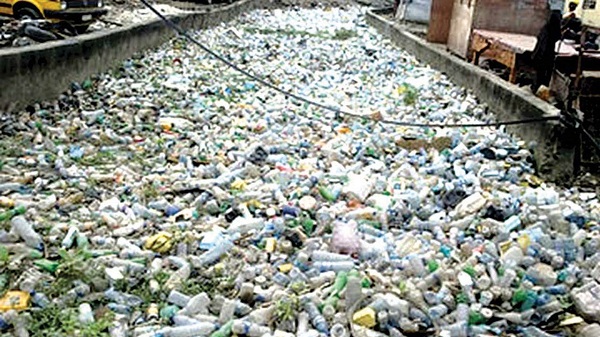
The United Nations Industrial Development Organisation (UNIDO) has called for contiuous collaboration between stakeholders to adopt circular economy practices to address the escalating issue of plastic pollution.
Speaking at a one-day seminar on plastic circular economy in Abuja, organised by the Federal Ministry of Environment (FME), UNIDO and the Embassy of Japan, UNIDO’s regional director, Mr. Jean Bakole emphasised the need for a collective effort to avert the potential repercussions on citizens and urged the public to actively engage in the initiative titled “Promoting Sustainable Plastic Value Chain Through Circular Economy Practices”.
Represented by Yomi Banjo, Bakole expressed concern over the impact of plastic pollution not only on Nigeria but also on neighboring countries. Given Nigeria’s extensive coastline, Bakole stressed the nation’s role in contributing to global plastic pollution.
Highlighting the severity of the global plastic waste problem, Banjo revealed staggering statistics—over 450 million metric tonnes of plastics are produced globally each year, with a yearly generation exceeding 300 metric tons. In Nigeria, less than 20 per cent of plastic waste is collected and a mere 9 per cent is recycled, indicating a significant challenge that requires collaborative solutions.
Banjo disclosed Nigeria’s active participation in negotiations committee meetings for a new plastic convention. He emphasised that Nigeria, if the convention is established, would bear collective responsibility, requiring the nation to sign, ratify, and adhere to the convention’s obligations alongside other countries.
Acknowledging Nigeria’s proactive steps, Banjo mentioned the implementation of frameworks, regulations, and guidelines to manage plastic effectively. He emphasised that these efforts are crucial not only for Nigeria but also for the African region and the world.
Banjo further revealed the collaborative project involving the governments of Nigeria and Japan, along with UNIDO. Now in its second year, the project’s evaluation will assess its impact on the country and its citizens.
UNIDO, a specialised agency of the United Nations, focuses on promoting industrialization in developing countries responsibly. The organisation conducted assessments in Lagos and Abuja, forming the project’s baseline.
The director of pollution control and environmental health at the Federal Ministry of Environment, Mr. Usman Bokani underscored the global attention plastics are receiving due to their economic benefits and negative consequences on health and the environment. Bokani urged participants to study circular economy practices worldwide to adopt applicable strategies locally.
Circular economy practices, according to Bokani, offer a path to transition from a less circular system to a more sustainable waste management system, particularly for plastics.
The representative of the Embassy of Japan to Nigeria, Mrs. Emem Umana commended the project’s progress and outlined Japan’s commitment to addressing maritime plastic pollution. Despite the geographical distance between Japan and Nigeria, Umana emphasised that environmental concerns are shared.
Japan, being a maritime nation with a significant tourism industry, recognises the urgency to tackle environmental issues and plastic waste for sustainable development in Africa. Umana assured ongoing support from Japan and international bodies to promote a sustainable value chain in Nigeria.
The director of solid waste management at the Abuja Environmental Protection Board (AEPB), Mr. Ben Enwerem called on Nigerians to unite in keeping the Federal Capital Territory (FCT) clean. Enwerem emphasised that the project would play a pivotal role in controlling plastics through recycling, contributing to a cleaner environment.
In conclusion, Bakole’s call for collective action resonates as the promotion of sustainable plastic practices through a circular economy becomes imperative for the well-being of Nigeria, its neighbours, and the entire world. The collaborative efforts between governments, international organisations, and local communities are crucial in addressing the escalating challenges posed by plastic pollution.

